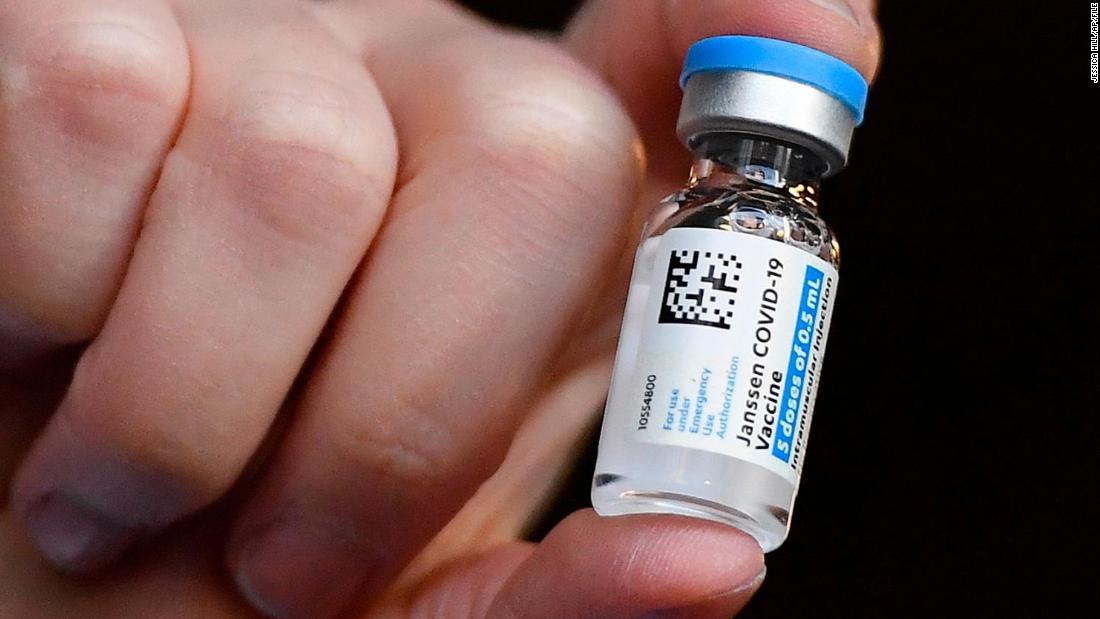
But the study doesn’t show that at all, the lead author said.
“We haven’t found anyone with blood clots,” said Dr. Eun-Ju Lee, an assistant professor of medicine at Weill Cornell Medical College, of her study of the Moderna and Pfizer vaccines. “We haven’t found any of those scary things happening to Johnson & Johnson.”
Of the more than 7 million people who have received the Johnson & Johnson Covid-19 vaccine, at least seven have had very rare blood clots in the brain – one man during clinical trials and six women during the introduction of the vaccine. put on hold due to concerns about the blood clot.
Now, Johnson & Johnson is coming under fire for stirring fears about Pfizer and Moderna’s vaccines, when the Johnson & Johnson injection is in fact the only one approved in the US with reports of blood clots.
In its press statement, Johnson & Johnson wrote that there were reports of blood clots for “all Covid-19 vaccines.”
“That’s really irresponsible to say,” said Dr. Paul Offit, referring to the J&J media statement. Offit, a vaccine expert at the University of Pennsylvania, is a member of the U.S. Food and Drug Administration’s advisory panel that reviewed emergency authorization applications from all three Covid-19 vaccine manufacturers.
Offit noted that the company’s statement was particularly unfortunate given that there are still significant numbers of people in the US who are reluctant to get a Covid-19 vaccine.
“I think Paul is right,” said Dr. William Schaffner, an infectious disease expert at Vanderbilt University Medical Center who is a member of a vaccine advisory panel of the U.S. Centers for Disease Control and Prevention. “His indignation is appropriate.”
In an email to CNN, a J&J spokesperson did not directly respond to questions as to why the company had said there were reports of blood clots when, in fact, there are not.
The spokesperson sent a statement saying, “We continue to work closely with medical experts and global health authorities to review the data on these extremely rare events. Above all, we are committed to the safety and wellbeing of the people who use our products, and we support public awareness of the signs and symptoms to ensure correct diagnosis, appropriate treatment and accelerated reporting by health care providers. ”
J & J’s April 9 media statement
In response, J&J released the media statement that day which said, “We are aware that thromboembolic events, including those with thrombocytopenia, have been reported with all COVID-19 vaccines.”
“Thromboembolic events” is a medical term for blood clots.
That J&J statement included a footnote to the study by Lee and her colleagues, which looked at some of the side effects reported after people received the Covid-19 vaccines manufactured by Pfizer / BioNTech and Moderna.
That study, published in February in the American Journal of Hematology, analyzed reports of people who had low platelet counts – not blood clots.
“Those are completely different entities,” said Lee, the lead author of the study. “It’s like apples and oranges.”
Different types of vaccines
Moderna and Pfizer are mRNA vaccines and J&J is an adenovirus vector vaccine. AstraZeneca also uses an adenovirus vector platform and this too has been associated with very low numbers of rare blood clots.
When asked about the Wall Street Journal report, the company made a statement to CNN that “we at Johnson & Johnson believe that collaborative scientific exchange can lead to more robust answers to questions – especially when it comes to patient safety. . ”
CNN’s Justin Lape and Amanda Sealy contributed to this report.
